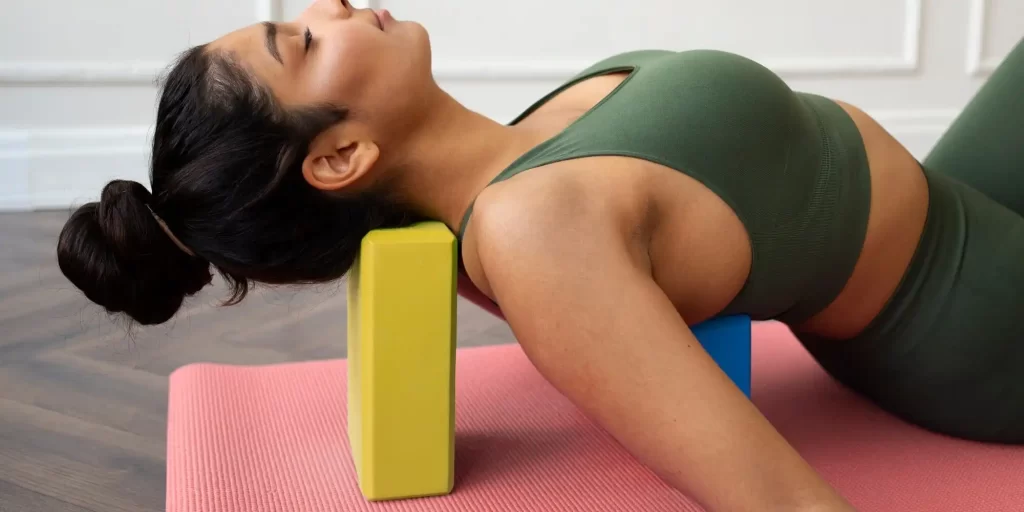Yoga blocks are essential props that can greatly enhance your yoga practice by providing support, stability, and alignment. However, with a variety of types, materials, and sizes available, choosing the right yoga block can be a daunting task. In this guide, we will explore the different aspects of yoga blocks to help practitioners make informed choices for a more comfortable and effective yoga experience.
Understanding the Types of Yoga Blocks
1. Foam Blocks:
Foam blocks are the most common and widely used yoga blocks. They are lightweight, affordable, and provide a moderate level of support. Foam blocks are ideal for beginners as they offer a good balance between firmness and comfort. Additionally, they are durable and easy to clean, making them a practical choice for various yoga practices.
2. Cork Blocks:
Cork blocks are a sustainable and eco-friendly option for yogis who prioritize environmental consciousness. These blocks are firm, providing excellent support for more advanced practitioners. The natural texture of cork also offers a non-slip surface, ensuring stability during poses. While cork blocks tend to be heavier than foam blocks, their durability and aesthetic appeal make them a popular choice.
3. Wooden Blocks:
Wooden blocks are sturdy and aesthetically pleasing, adding a touch of nature to your practice. They are typically made from bamboo or other hardwoods, offering a firm and stable surface. Wooden blocks are durable but may be heavier than foam or cork options. They are suitable for practitioners who prefer a solid and unyielding support system.
Considering the Material
1. Density:
The density of the yoga block material determines its firmness. Foam blocks come in various densities, with softer ones providing more comfort and denser ones offering increased support. Cork and wooden blocks are naturally dense, making them ideal for practitioners who require a solid foundation for their poses.
2. Texture:
The texture of the block can impact your grip during practice. Cork blocks have a naturally non-slip texture, providing a secure grip even in sweaty conditions. Foam blocks may have a smoother surface, so practitioners should consider personal preferences and the level of grip required for their practice.
Finding the Right Size
1. Standard Size:
Standard-sized yoga blocks are 4x6x9 inches, providing a versatile option for most practitioners. These dimensions offer ample support for various poses and can be easily incorporated into different yoga styles.
2. Large Size:
For individuals seeking additional height or support, larger blocks (4x6x12 inches) are available. These blocks are particularly useful for restorative or therapeutic practices where extra elevation is beneficial.
3. Travel Size:
Compact and lightweight, travel-sized blocks are perfect for yogis on the go. These blocks typically measure 3x6x9 inches, making them easy to pack in a yoga bag or suitcase.
Making Your Informed Choice
Choosing the right yoga block involves considering your personal preferences, experience level, and the type of practice you engage in. Whether you opt for the affordability of foam, the sustainability of cork, or the sturdiness of wood, selecting the right material and size will enhance your yoga journey. Experiment with different options to find the perfect yoga block that complements your practice and helps you achieve balance, alignment, and stability on the mat.
Frequently Asked Questions (FAQ)
Q: What is the purpose of using yoga blocks?
A: Yoga blocks are used to provide support, stability, and alignment in various yoga poses. They help practitioners of all levels improve their form, deepen stretches, and make challenging poses more accessible.
Q: Are there different types of yoga blocks?
A: Yes, there are several types of yoga blocks, including foam blocks, cork blocks, and wooden blocks. Each type offers unique characteristics in terms of firmness, durability, and eco-friendliness.
Q: How do I choose the right size of yoga block?
A: The right size depends on your personal preferences and the type of practice you engage in. Standard-sized blocks (4x6x9 inches) are versatile, while larger blocks (4x6x12 inches) provide extra support. Travel-sized blocks (3x6x9 inches) are compact and suitable for on-the-go yogis.
Q: Are cork blocks environmentally friendly?
A: Yes, cork blocks are considered eco-friendly. Cork is a sustainable material that is harvested without harming the tree, and its production has minimal impact on the environment.
Q: Can beginners use wooden yoga blocks?
A: While wooden blocks are generally firmer, beginners can use them based on personal preference. Some may find the solid support beneficial, while others might prefer the cushioning of foam blocks when starting their yoga journey.
